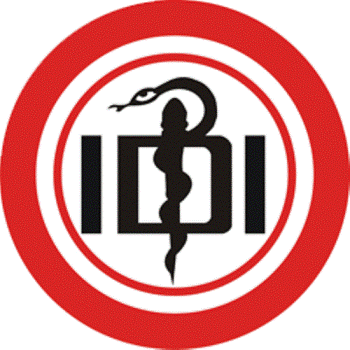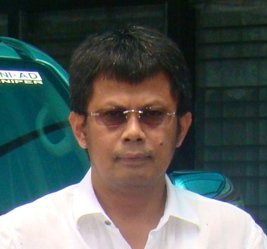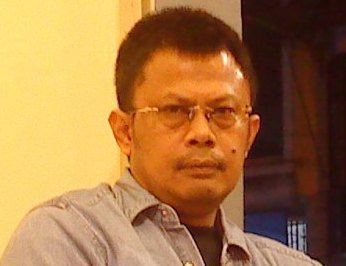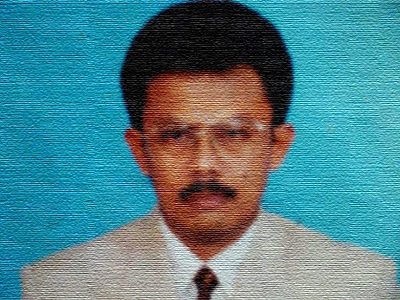Stem cell treatment of Autism
Introduction - Autism
Autism is a brain development disorder characterized by impaired social interaction and communication, and by restricted and repetitive behavior. These signs all begin before a child is three years old. Autism involves many parts of the brain. How it occurs is not well understood.
There is no cure for Autism. The main goals of treatment are to lessen associated deficits and family distress, and to increase quality of life and functional independence. No single treatment is best and treatment is typically tailored to the child's needs.
Many medications are used to treat autism spectrum disorder (ASD) symptoms that interfere with integrating a child into home or school when behavioral treatment fails. More than half of U.S. children diagnosed with ASD are prescribed psychoactive drugs or anticonvulsants, with the most common drug classes being antidepressants, stimulants, and antipsychotics.
The Xcell-Center Autism treatment
The XCell-Center's stem cell therapy is a drug-free alternative focused on affecting physical changes in the brain that can improve an autistic child's quality of life. These improvements usually translate into improved quality of life for their parents and siblings as well.
In a recent pilot study of 10 autistic patients, more than 70% of the respondents showed improvement.
Autism patients are treated by lumbar puncture; injecting the stem cells into the cerebrospinal fluid which transports them up the spinal canal and into the brain.
Lumbar puncture is an outpatient procedure that requires patients to stay in Germany 4 or 5 nights.
Bone Marrow Collection
 On the first day, bone marrow is collected from the patient's iliac crest (hip bone) using thin-needle mini-puncture under general anesthesia. The entire procedure normally takes about 30 minutes.
On the first day, bone marrow is collected from the patient's iliac crest (hip bone) using thin-needle mini-puncture under general anesthesia. The entire procedure normally takes about 30 minutes.
Because the bone marrow collection procedure requires patients to sit still, it is performed under general anesthesia for children and older patients who for any reason cannot keep still.
Once the bone marrow collection is complete, patients may return to their hotel and go about normal activities after a short recovery period in the clinic.
More detailed information on the bone marrow collection procedure is available in the Bone Marrow Informed Consent document (PDF file).
Laboratory Processing
 The next day, the stem cells are processed from the bone marrow in a state-of-the-art, government approved (cGMP) laboratory. In the lab, both the quantity and quality of the stem cells are measured. These cells have the potential to transform into multiple types of cells and are capable of regenerating or repairing damaged tissue.
The next day, the stem cells are processed from the bone marrow in a state-of-the-art, government approved (cGMP) laboratory. In the lab, both the quantity and quality of the stem cells are measured. These cells have the potential to transform into multiple types of cells and are capable of regenerating or repairing damaged tissue.
Stem Cell Implantation
On the third day, the stem cells are implanted back into the patient by lumbar puncture.
Lumbar Puncture
A spinal needle is inserted between L4 and L5 vertebrae and a small amount of spinal fluid is removed. A portion of that spinal fluid is mixed with the stem cell solution which is then injected into back into the patient's spinal fluid, not the spinal cord. After the stem cells have been implanted, the patient will lie down in the recovery room for a few hours before returning to his or her hotel room. The lumbar puncture procedure is performed under general anesthesia for children and older patients who cannot sit still.
Following Treatment
Patients who are treated by lumbar puncture are required to stay in town on the day after their procedure for general safety purposes. They may return home on the fifth day.
Treatment Results
Follow-up statistics from 7 treated autism patients completed in September 2009 show that over 70% (5 of 7) experienced improvements after stem cell therapy.
The mean age of the patients was 10 years, while the median age was 9.5 years. The oldest treated patient was 16 years of age and the youngest 5. There was no apparent correlation between positive outcome and the number of stem cells administered.
Overall, patients reported improvements in cognition, language, social contact, eye contact, coordination, motor skills and awareness
Below is a summary of results for 4 of the 5 patients who improved after treatment:
Patient #1 - (M) Age 6 - Treated May 2009
- Improved cognition and sensory processing
- Patient can now climb onto the trampoline by himself, and play on it for about 20 minutes. Before the treatment, he screamed when the parents put him onto the trampoline.
- Improved attention span - He watched TV for 30 minutes. Prior to stem cell transplantation, his attention span was a few seconds to no longer than a minute.
- Meaningless play has reduced
- The above improvements were confirmed by the patient's doctor
Patient #2 - (M) Age 6 - Treated June 2009
- Hand and finger motor skill improvement
- Improved handwriting
- Improved speech
- Eating more independently
- Can now ride a bicycle without fear
- Improved ability to socialize with others
- Improved cognition
Patient #3 - (F) Age 16 - Treated July 2009
- Improved motor skills and coordination
- More confident
- Calmer at school
- Grades have improved - especially math
Patient #4 - (F) Age 11 - Treated January 2009
- Better behaved
- Decreased hyperactivity
- Less insomnia - patient can now sleep through the night
- Improved attention span
- Less frustrated
For safety information on 350 patients treated by lumbar puncture, please view our Lumbar Puncture Safety Statistics (PDF file).
Patient Stories
Lauren DiCorcia, 10 years old
"…In the past 6 weeks we have seen significant improvements in our daughter´s behaviors, focus, hyperactivity and insomnia…"
Costs
Stem cell implantation via lumbar puncture: 9,545 Euros (including general anesthesia)
Evaluation Process
In order to be evaluated for treatment, patients' parents must complete an online medical history form. Once you've completed the online medical history and submitted it, a patient relations consultant will contact you within 3 business days. He or she will assist you with the rest of the evaluation process. Upon treatment approval, your consultant will also assist you with treatment scheduling and trip preparation.
If you and your child will be in Germany, you may also schedule an in-person consultation/evaluation with an XCell-Center physician. You may also request a "fast-track" evaluation and treatment schedule.
News
- Stem cells and tumor risk more…
- December 2, 2009
The Prescott Daily Courier features Parkinson's Patient, Aubra Phillips more… - November 18, 2009
Our 2009 Patient Satisfaction Survey Results are in! more… - October 7, 2009
XCell-Center Commences Neuro-endoscopic Autologous Stem Cell Treatments in Germany more… - October 1, 2009
Autism Patients Show Progress Following Stem Cell Therapy more… - July 20, 2009
Safety Follow-up in 350 patients after stem cell therapy more… - February 25, 2009
Stem Cell Heart Treatment Unveiled at the XCell-Center more… - TV Link: About XCell-Center more…
- News archive 2008 more…
- News archive 2007 more…
Stem cell treatment of Autism
Introduction - Autism
Autism is a brain development disorder characterized by impaired social interaction and communication, and by restricted and repetitive behavior. These signs all begin before a child is three years old. Autism involves many parts of the brain. How it occurs is not well understood.
There is no cure for Autism. The main goals of treatment are to lessen associated deficits and family distress, and to increase quality of life and functional independence. No single treatment is best and treatment is typically tailored to the child's needs.
Many medications are used to treat autism spectrum disorder (ASD) symptoms that interfere with integrating a child into home or school when behavioral treatment fails. More than half of U.S. children diagnosed with ASD are prescribed psychoactive drugs or anticonvulsants, with the most common drug classes being antidepressants, stimulants, and antipsychotics.
The Xcell-Center Autism treatment
The XCell-Center's stem cell therapy is a drug-free alternative focused on affecting physical changes in the brain that can improve an autistic child's quality of life. These improvements usually translate into improved quality of life for their parents and siblings as well.
In a recent pilot study of 10 autistic patients, more than 70% of the respondents showed improvement.
Autism patients are treated by lumbar puncture; injecting the stem cells into the cerebrospinal fluid which transports them up the spinal canal and into the brain.
Lumbar puncture is an outpatient procedure that requires patients to stay in Germany 4 or 5 nights.
Bone Marrow Collection
 On the first day, bone marrow is collected from the patient's iliac crest (hip bone) using thin-needle mini-puncture under general anesthesia. The entire procedure normally takes about 30 minutes.
On the first day, bone marrow is collected from the patient's iliac crest (hip bone) using thin-needle mini-puncture under general anesthesia. The entire procedure normally takes about 30 minutes.
Because the bone marrow collection procedure requires patients to sit still, it is performed under general anesthesia for children and older patients who for any reason cannot keep still.
Once the bone marrow collection is complete, patients may return to their hotel and go about normal activities after a short recovery period in the clinic.
More detailed information on the bone marrow collection procedure is available in the Bone Marrow Informed Consent document (PDF file).
Laboratory Processing
 The next day, the stem cells are processed from the bone marrow in a state-of-the-art, government approved (cGMP) laboratory. In the lab, both the quantity and quality of the stem cells are measured. These cells have the potential to transform into multiple types of cells and are capable of regenerating or repairing damaged tissue.
The next day, the stem cells are processed from the bone marrow in a state-of-the-art, government approved (cGMP) laboratory. In the lab, both the quantity and quality of the stem cells are measured. These cells have the potential to transform into multiple types of cells and are capable of regenerating or repairing damaged tissue.
Stem Cell Implantation
On the third day, the stem cells are implanted back into the patient by lumbar puncture.
Lumbar Puncture
A spinal needle is inserted between L4 and L5 vertebrae and a small amount of spinal fluid is removed. A portion of that spinal fluid is mixed with the stem cell solution which is then injected into back into the patient's spinal fluid, not the spinal cord. After the stem cells have been implanted, the patient will lie down in the recovery room for a few hours before returning to his or her hotel room. The lumbar puncture procedure is performed under general anesthesia for children and older patients who cannot sit still.
Following Treatment
Patients who are treated by lumbar puncture are required to stay in town on the day after their procedure for general safety purposes. They may return home on the fifth day.
Treatment Results
Follow-up statistics from 7 treated autism patients completed in September 2009 show that over 70% (5 of 7) experienced improvements after stem cell therapy.
The mean age of the patients was 10 years, while the median age was 9.5 years. The oldest treated patient was 16 years of age and the youngest 5. There was no apparent correlation between positive outcome and the number of stem cells administered.
Overall, patients reported improvements in cognition, language, social contact, eye contact, coordination, motor skills and awareness
Below is a summary of results for 4 of the 5 patients who improved after treatment:
Patient #1 - (M) Age 6 - Treated May 2009
- Improved cognition and sensory processing
- Patient can now climb onto the trampoline by himself, and play on it for about 20 minutes. Before the treatment, he screamed when the parents put him onto the trampoline.
- Improved attention span - He watched TV for 30 minutes. Prior to stem cell transplantation, his attention span was a few seconds to no longer than a minute.
- Meaningless play has reduced
- The above improvements were confirmed by the patient's doctor
Patient #2 - (M) Age 6 - Treated June 2009
- Hand and finger motor skill improvement
- Improved handwriting
- Improved speech
- Eating more independently
- Can now ride a bicycle without fear
- Improved ability to socialize with others
- Improved cognition
Patient #3 - (F) Age 16 - Treated July 2009
- Improved motor skills and coordination
- More confident
- Calmer at school
- Grades have improved - especially math
Patient #4 - (F) Age 11 - Treated January 2009
- Better behaved
- Decreased hyperactivity
- Less insomnia - patient can now sleep through the night
- Improved attention span
- Less frustrated
For safety information on 350 patients treated by lumbar puncture, please view our Lumbar Puncture Safety Statistics (PDF file).
Patient Stories
Lauren DiCorcia, 10 years old
"…In the past 6 weeks we have seen significant improvements in our daughter´s behaviors, focus, hyperactivity and insomnia…"
Costs
Stem cell implantation via lumbar puncture: 9,545 Euros (including general anesthesia)
Evaluation Process
In order to be evaluated for treatment, patients' parents must complete an online medical history form. Once you've completed the online medical history and submitted it, a patient relations consultant will contact you within 3 business days. He or she will assist you with the rest of the evaluation process. Upon treatment approval, your consultant will also assist you with treatment scheduling and trip preparation.
If you and your child will be in Germany, you may also schedule an in-person consultation/evaluation with an XCell-Center physician. You may also request a "fast-track" evaluation and treatment schedule.
News
- Stem cells and tumor risk more…
- December 2, 2009
The Prescott Daily Courier features Parkinson's Patient, Aubra Phillips more… - November 18, 2009
Our 2009 Patient Satisfaction Survey Results are in! more… - October 7, 2009
XCell-Center Commences Neuro-endoscopic Autologous Stem Cell Treatments in Germany more… - October 1, 2009
Autism Patients Show Progress Following Stem Cell Therapy more… - July 20, 2009
Safety Follow-up in 350 patients after stem cell therapy more… - February 25, 2009
Stem Cell Heart Treatment Unveiled at the XCell-Center more… - TV Link: About XCell-Center more…
- News archive 2008 more…
- News archive 2007 more…
24.jpg)



















